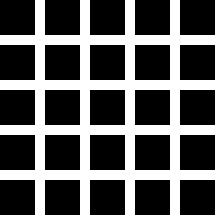|
|
Craig White's Literature Courses in Langston Hughes, "Dream Variations" & Countee Cullen, "From the Dark Tower" |
|
Terms: The Harlem Renaissance, lyric poem, symbols, color code, manichaeism
Purposes: Artists and writers inherit cultural codes or schemes of symbols but manipulate them to raise questions, challenge unconscious signification.
Colors as handy sensorium for teaching symbols, whose meanings change, evolve, or adapt to changing contexts, maintaining significance for different purposes.
Dickinson's "[Dare you see a soul at the White Heat?"
Discussion questions for "Dream Variations" & "From the Dark Tower":
1. How do the poems by Hughes and Cullen reverse, complicate, or enrich the standard black-white color code of Western Civilization?
1a. What do we learn about how symbols operate?
2. Which of these poems is free verse & which is formal verse? What different strengths or appeals of either?
Backgrounds from the American Renaissance:
Last of the Mohicans played new cultural riffs on gothic color scheme of light and dark +- red, yellow
| gothic color scheme |
light |
dark |
red/yellow |
| Western Civilization moral metaphysics |
white as innocence, purity |
black or darkness as evil, decay |
blood? anger? |
| races of early North America |
white people (European Americans); Alice, Duncan Heyward, Hawkeye |
black people (African Americans) |
the "red man" (American
Indians); |
symbols or signifiers like white / light for good or black / dark for evil can become so much a part of our cultural environment as to feel like nature or reality itself.
+ some potential correlations with nature: light as safety of sight, darkness as threat of unknown.
but modern (postmodern?) literary / linguistic theory detaches language or signs from what they represent. (Structuralism > Post-Structuralism)
A word or sign doesn't mean what it means because of a natural connection to what it signifies.
Instead, words or signs have meanings because of connections or relations to other signs.
Overall question: What happens when a black or dark person engages a Western European color code in which
darkness or black = evil & irrational
&
light or whiteness = good, order, reason, etc.?
Not to reduce multiculturalism to skin color, but readers may fairly wonder how dark-skinned readers would react positively to symbols of darkness as evil, corrupt, sinful, etc.
Skin color can't be discounted, but not only factor undermining African Americans' identifications of white with good, black with evil.
Color Coding in Douglass
1.3 father
white man,
whispered
1.4 I do not recollect of ever seeing my mother by the light of day. She was with me in the night.
10H.6 yellow mulatto devil
5.9 white face, kindly emotions
Color Coding in Jacobs
1.5 bake crackers at night
1.6 Anglo-Saxon ancestors
6.22 color of his soul! (color code)
10.6 confuses all principles of morality
21.4 all must be done in darkness




